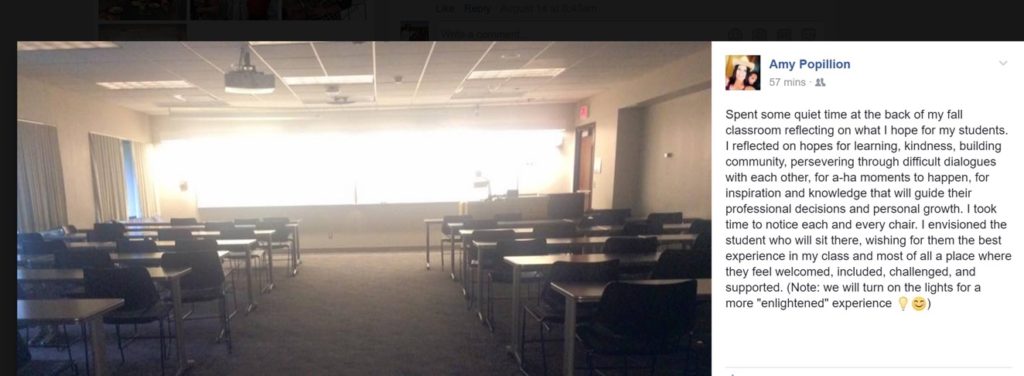Tag: Reflection
Student reflection and feedback: Ending the semester on a reflective note (Teaching Tip)
Workshop: ABCs of Preparing Your Teaching Portfolio with Cynthia Haynes & Paul Hengesteg
This workshop, the third in a series or stand-alone, brings elements of effective teaching together so faculty can organize evidence of their teaching, analyze their effectiveness, and create their teaching narrative. Participants will identify themes in their teaching feedback from themselves, peers, and students, and connect it to their teaching philosophy statement. Facilitated by Cindy Haynes (CELT Faculty Fellow) and Paul Hengesteg (CELT Assessment Coordinator) this workshop is intended to be a true “work” shop, so bring (or have access to) your documentation/evidence of teaching and a laptop. CELT will provide lunch!
Learning Goal & Objectives
In this workshop series, participants assemble a teaching portfolio, usable in promotion and tenure, awards, and annual reviews. In this session, they will:
1. Identify components of a holistic picture of teaching
2. Collect and document teaching evidence from self, peers, and students
3. Analyze teaching evidence for themes, compare with teaching statement
4. Draft their teaching narrative
If you are a person with a disability, please contact CELT at 515-294-5357 or email celt@iastate.edu to request reasonable accommodations to allow participation in this event.
If you would prefer to register outside of the link below, you can call CELT at 515-294-5357 or email celt@iastate.edu (specify event title, date, name, and department with your request) if you’d like to register that way.
Reflecting on what I hope for my students…
Amy Popillion, Senior Lecturer, Human Development & Human Sciences at Iowa State University, and Facilitator for CELT’s Team-Based Learning Faculty/Staff Learning Community shared this reflection with us before students arrived on campus yesterday,
“Spent some quiet time at the back of my fall classroom reflecting on what I hope for my students. I reflected on hopes for learning, kindness, building community, persevering through difficult dialogues with each other, for a-ha moments to happen, for inspiration and knowledge that will guide their professional decisions and personal growth. I took time to notice each and every chair. I envisioned the student who will sit there, wishing for them the best experience in my class and most of all a place where they feel welcomed, included, challenged, and supported. (Note: we will turn on the lights for a more “enlightened” experience 💡😊).”

